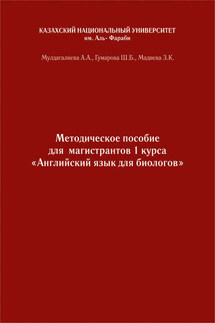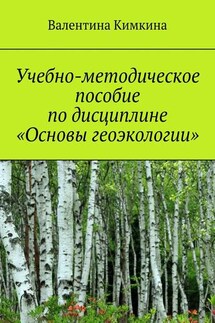Английский язык. Учебно-методическое пособие к практическим занятиям для биологов бакалавриата и магистратуры - страница 10
2. Find in the text the English equivalents for the following words and word-combinations:
согласованные усилия, реальная помощь, международное сообщество, ключевой вопрос, чистая питьевая вода, снизить рост населения, немедленно, в течение десятилетия, оросительные системы, поднять уровень воды, рыбный промысел, пыльная буря, средство, частичное восстановление, эндемическая флора и фауна, искусственно поддерживать, конкурент.
3. Answer the following questions:
1. What are the most critical problems of the Aral Sea region?
2. Why is it important to preserve the delta of the Amu-Dar'ya?
3. Why is it necessary to reduce the frequency and severity of salt and dust storms?
4. What are the chief sources of the storms?
5. Can the entire Aral Sea be restored to its prerecession size?
6. Why should the endemic fauna and flora be reintroduced to the sea?
7. Why should salt-tolerant vegetation be planted in the Aral Sea region?
4. Copy out of each paragraph the sentences containing the most important information.
5. Express the main idea of the whole text in English.
UNIT VII
New words and expressions:
surround – окружать
accompany – сопровождать
owing to – из-за, по причине, вследствие
underestimate – недооценивать
confident – уверенный
benefit – польза, выгода
outweigh – перевешивать
harm – вред
experience – опыт
throe – муки, агония
reverse – изменять
rectify – исправлять
appeal – взывать, обращаться
proposal – предложение
caution – осторожность, предупреждение
disrupt – сорвать
cause – причинять, вызывать, заставлять
collapse – падение, крах, провал
Read the international words and give their Russian equivalents:
scale, negative, human, massive, planner, engineer, radical, result, experience, hydrological, period, process, correct, complex, management, collapse.
The Aral Sea and surrounding region has suffered large scale negative environmental change accompanied by major economic losses and human suffering over the past 4 decades owing to development of massive irrigation works. Soviet planners and engineers in 1950s, 1960s and 1970s underestimated both the range and severity of these consequences. They were confident that the socio-economic benefits of irrigation development outweigh any harm that might result.
What lesson can be learnt from the Aral Sea experience?
1) Once a large hydrological system such as the Aral Sea basin is in the throes of radical change, it is very difficult, costly and requires a lengthy period to reverse the process (i. e. it is much easier to create such problems than to rectify them).
2) Simplistic and, at first glance, appealing proposals to correct complex water management problems in the Aral Sea basin quickly (e. g. through rapid and massive cuts in irrigation to free water for the Aral Sea) should be approached with caution as they may so disrupt the economy as to cause its collapse.
From "Surviving Together" P.P.Micklin, Ph.D.
EXERCISES:
1. Find in the text the English equivalents for the following wordsandword-combinations:
большие экономические потери, за последние 4 десятилетия, переоценить, быть уверенным, социально-экономическая выгода, перевесить, с осторожностью.
2. Form verbs from the following nouns and translate them into
Russian:
change, loss, suffering, development, irrigation, work, planner, weight, result, creation, appeal, proposal, correction, management, cut, freedom, approach, cause.






